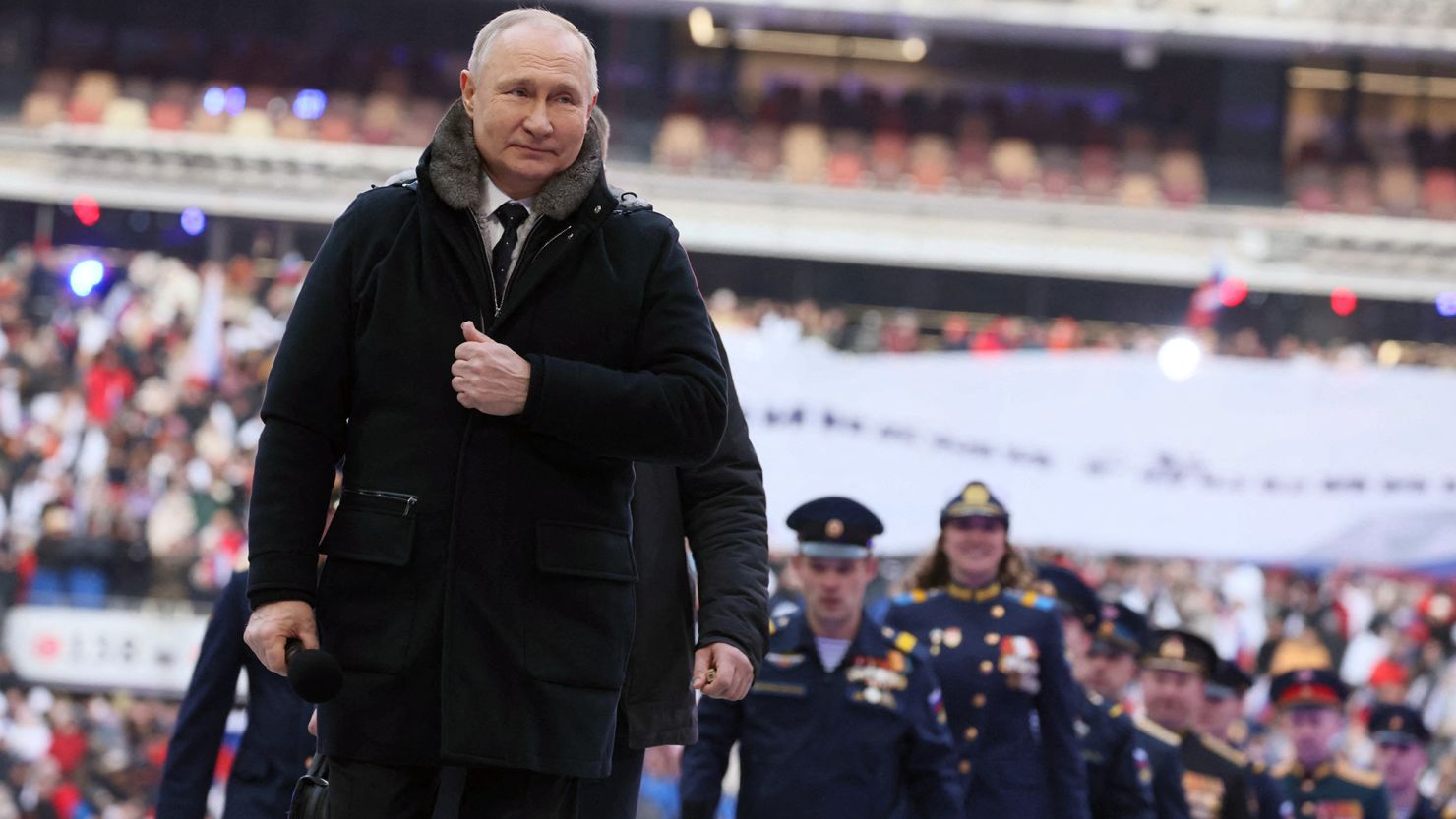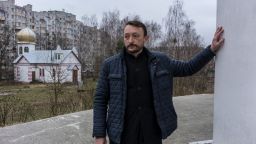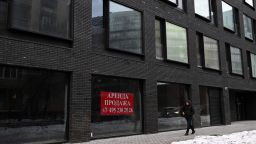One day after delivering a state of the nation speech before Russia’s parliament, President Vladimir Putin made an appearance before a flag-waving crowd at Moscow’s Luzhniki stadium.
It was a chilling spectacle. The Kremlin leader was essentially presiding over a militaristic pep rally aimed at drumming up public support for his calamitous military adventure in Ukraine.
“We are meeting with you on the eve of Defender of the Fatherland Day,” Putin said, referring to the February 23 holiday commonly known as Men’s Day. “In this phrase, in these words, there is something powerful, huge, I would say, mystical and holy.”
Put otherwise, Putin was selling his war in Ukraine as a sort of crusade – and therefore something that will require sacrifices by his people.
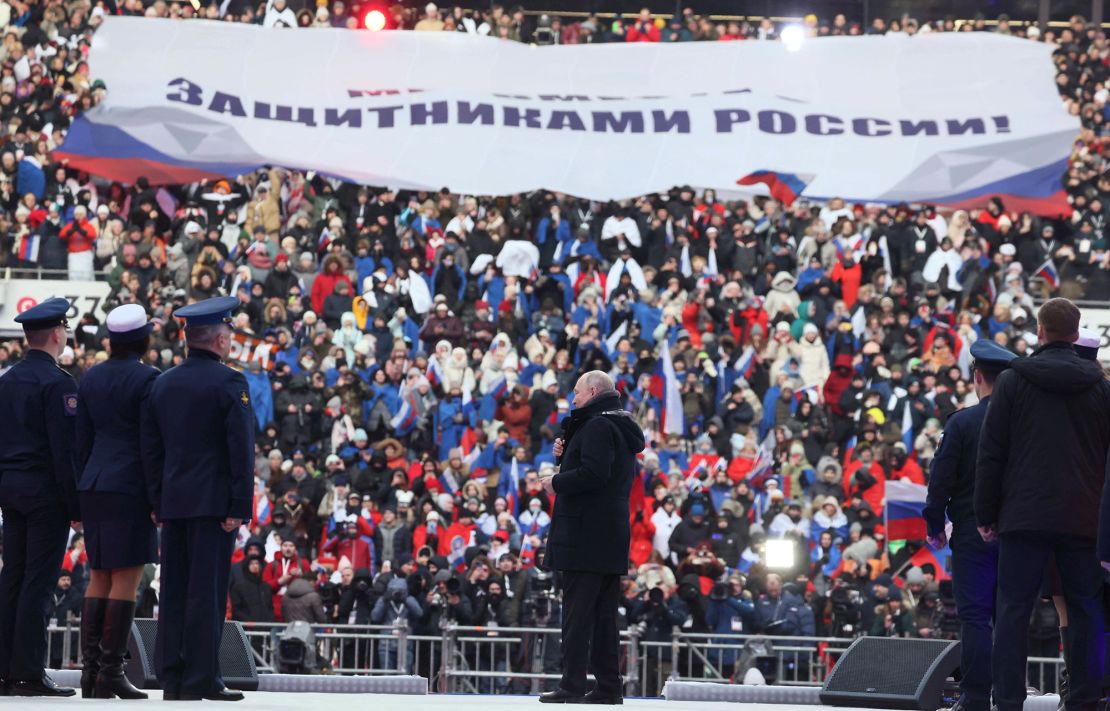
Flanked by uniformed military personnel, the Russian president led the crowd in cheers for the troops that he said were fighting for the “historical borders of our people,” his mendacious shorthand for the parts of Ukraine that Russia has attempted to annex, and that Russian forces have failed to control.
“We have gathered here, in fact, for a festive event, but I know – just now I was listening to the country’s top military leadership – that right at this moment, there is a battle going on on our historical borders for our people,” Putin said. “It is being led by the same courageous fighters who are now standing next to us here. They fight heroically, courageously, bravely. We are proud of them. We are proud, so three cheers in their honor!”
In his address before the Russian parliament the day previous, Putin made a rambling digression about what he described as Russia’s traditional values under attack, making bizarre remarks about the West’s promotion of “perversions.” At Luzhniki stadium, the Russian leader also cast his war on Ukraine as a campaign to defend the family.
“In our heart, Motherland and family is the same,” Putin said to the crowd. “The people standing here made a decision to defend the most sacred of what we have – family and Motherland.”
The concert that bookended Putin’s appearance was a sort of pro-war Super Bowl halftime special, a fist-pumping version of the mass rallies of 20th century totalitarianism.
The independent Russian Telegram channel SOTA reported that students had been corralled in dormitories to attend the rally; SOTA also posted a smartphone screenshot purportedly from the organizers of the concert that appeared to urge attendees to bring their friends.
The rally had moments of extreme military kitsch, including an accordion ensemble playing “333,” a tune written by a Russian participant in the current war.
It also played to World War II nostalgia. The Great Patriotic War, as it is known in Russia, is a touchstone for many Russians and a cause frequently invoked by Putin.
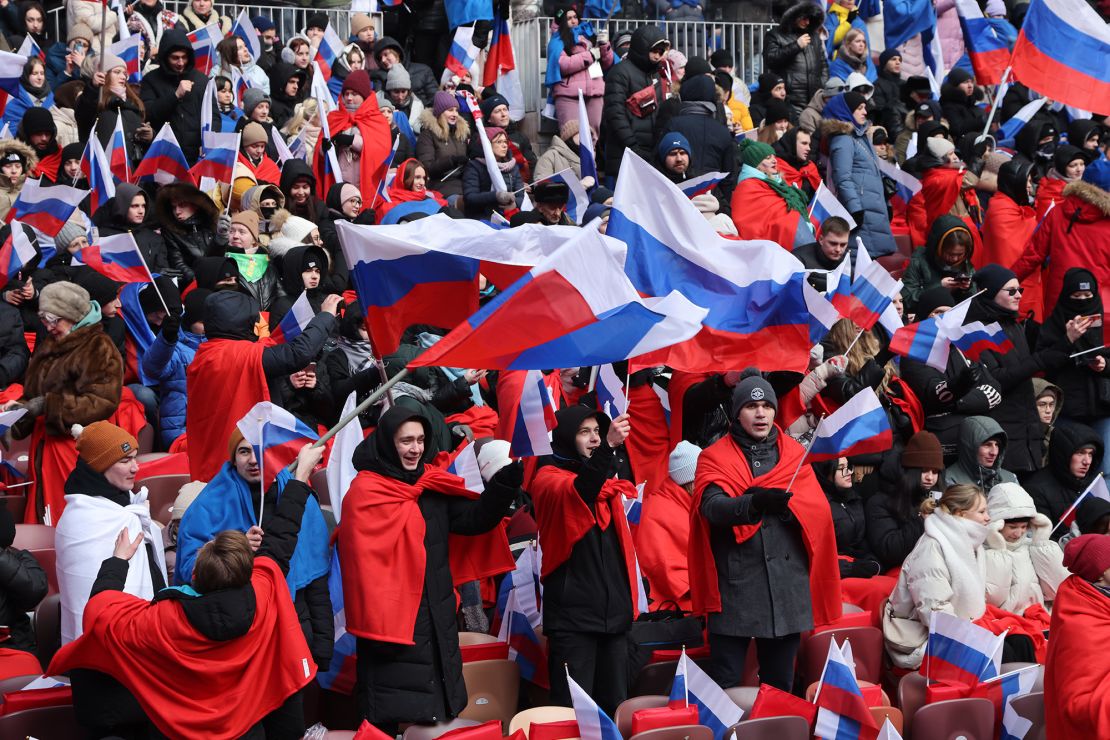
A camouflage-clad soldier performed a rap version of Katyusha, the patriotic Soviet wartime anthem, and screens featured images of the Immortal Regiment, a modern-day commemoration of the war that has been promoted by the Kremlin.
It also had a moment of cringe. The organizers ushered a group of children – described as children rescued from the Donbas region and the shattered Ukrainian city of Mariupol – and encouraged them to hug a uniformed man described as their rescuer.
The images were particularly disturbing in the wake of a new report that the Russian government has been operating a network of camps where it has held thousands of Ukrainian children and undertaken a campaign of political re-education.
But it was particularly ironic to see Kremlin-supporting artists performing a ghastly martial rendition of Gruppa Krovi, the classic anti-war song by Viktor Tsoi, a cult hero of the Soviet rock underground.
Amid the carnage in Ukraine, the lines from the song are still relevant. “Blood type on my sleeve / Serial number on my sleeve / Wish me luck in battle, wish / I’m not left lying in the grass.”
That, of course, was something left unmentioned in Putin’s speech: The thousands – tens of thousands – of Russians left dead and maimed on Ukrainian soil.
